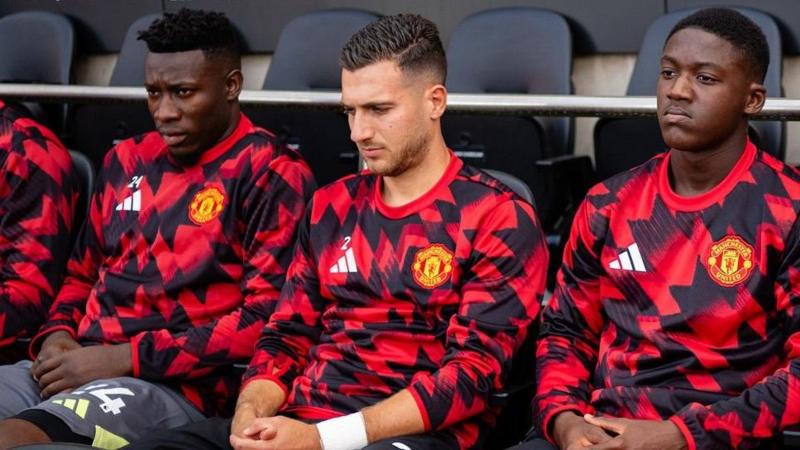Amorim Claims No European Games Boost Man Utd's Performance!




In an intriguing twist of fate, Manchester United finds itself out of European football competition this season. While this might seem like a setback for a club steeped in continental success, head coach Ruben Amorim is viewing it as a unique opportunity to fortify and refocus. Evidently, the lack of European nights at Old Trafford isn’t something to mourn; rather, it's a strategic breathing space in the relentless football calendar.
The absence from European contention comes after Manchester United failed to qualify last season, breaking a streak and initiating a series of recalibrations within the club. This scenario, though not ideal in the illustrious history of a club that has lifted the UEFA Champions League three times, presents a silver lining which Amorim is keen to capitalize on.
Managing a football club with the stature and expectations of Manchester United is no small feat, and doing so without the added pressures and fixtures European competition brings could be a blessing in disguise. It allows Amorim and his coaching staff to channel all their energy and resources into domestic competitions, namely the Premier League and the domestic cups.
This focus can be a crucial factor in rebuilding and strengthening the squad’s dynamics. Typically, European matches add a significant number of games to the club’s season, stretching resources thin and often leading to player fatigue. Without this, players have a better chance of staying fit and maintaining form, which is vital for a sustained challenge at the top of the Premier League table.
Moreover, with the extra days in between games, Amorim can spend more time at the training ground working on tactical drills and team cohesion. This is particularly beneficial for integrating new signings and developing young players from the academy—something that Manchester United prides itself on. The pause from Europe might just be what United needs to spark a regeneration, focusing on nurturing talents like Mason Greenwood, Marcus Rashford, and Scott McTominay, all of whom have come through the ranks.
Strategically, it allows Amorim to craft a team that embodies his philosophy without the intermittent disruption of travel and midweek fixtures abroad. Adapting to a new coach’s methods takes time, and this additional bandwidth gives everyone at United the chance to thoroughly assimilate into Amorim’s vision.
Financially, there’s no denying that not participating in a European competition does have a downside. The revenue generated from UEFA games is substantial, through both match-day earnings and broadcast rights. However, the club's commercial strength and global fan base continue to provide a financial buffer that many other clubs might not have in a similar situation. This financial stability allows Manchester United to weather the storm more comfortably than others.
In a broader sporting context, this could also recalibrate expectations and set realistic targets for the club. Without the prospect of European silverware, the goals are clear - to reclaim domestic glory by winning the Premier League, a trophy they haven't secured since 2013, and to challenge seriously for the FA Cup and the EFL Cup.
Coach Ruben Amorim’s confidence in the benefits of this European hiatus is not just about making the best of an unfavorable situation. It's about actively leveraging it as a strategic advantage. The Portuguese tactician’s optimism and forward-thinking approach might just be the catalyst Manchester United needs to rejuvenate its squad and climb back to the top of English and European football.
Eventually, Manchester United will aim to return to European competitions, hopefully more robust and more competitive. This period of introspection and focused domestic ambition under Amorim's guidance could well be remembered as the calm before a triumphant storm in the annals of the club’s decorated history.